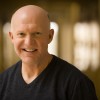It’s no secret that American society is deeply divided today. Dr. Bruce Ashford says it’s more than just political issues that separate us from our neighbors. Our differing experiences can cause us to develop very different ideas about what policies work best. While two people will see the same cultural concerns, their reactions and solutions may not always be the same.
“You have people who tend to be culture warriors. They going to tend to view Christianity’s relationship to the broader social and cultural context as war, and maybe nothing but war. The tendency, in order to fight this bad society and culture out there, is to use short-term political activism to win elections and pull top-down levers of influence.”
“Culture cultivators are going to say that short term activism, in the end, hurts your witness. We’re comfortable being a minority and not pulling those top-down levers if it goes against what we think we ought to do; we’re comfortable working for change from the bottom up.”
Ashford says an individual might fit in either general category during their lifetime and can even have elements of both. However those differing views don’t have to prevent us from successful cooperation.
“The first thing is we have to find common ground and work from there. I think we’re ignoring the common ground: there’s plenty of it. You start there, work from there.”
In addition to establishing common ground, Ashford says two Christian virtues can guide us toward the goal. The first is love.
“Love your neighbor as yourself. Love means that we listen attentively to people with whom we disagree, that we refuse to demean and degrade them as we tend to do to anyone who’s across the aisle politically.”
“The talk show hosts and cable news networks have taught us that what you’re supposed to do is lie about these people, misrepresent them, view them as morally reprehensible people in whom nothing good can be found. Love demands that we don’t do that, that we actually listen– that we reach a hand across the aisle.”
A second virtue to help us rebuild our fractured nation is wisdom.
“Wisdom is different than knowledge. Knowledge is knowing facts. Wisdom is knowing what to do with those facts, how to weigh the alternatives, and in some instances to make a compromise. If you don’t have compromise, you don’t have politics; if you’re not willing to ever broker compromises, then what you’re going to end up with is a totalitarian regime.”
“There are many times when we have to compromise on policy issues–and then there are some times we don’t compromise, when we draw a line in the sand. Wisdom is what lets us know the difference.”
Dr. Bruce Ashford is Provost and Professor of Theology & Culture at Southeastern Baptist Theological Seminary. He’s the author of and .
Bridging our divisions with Dr. Bruce Ashford





















